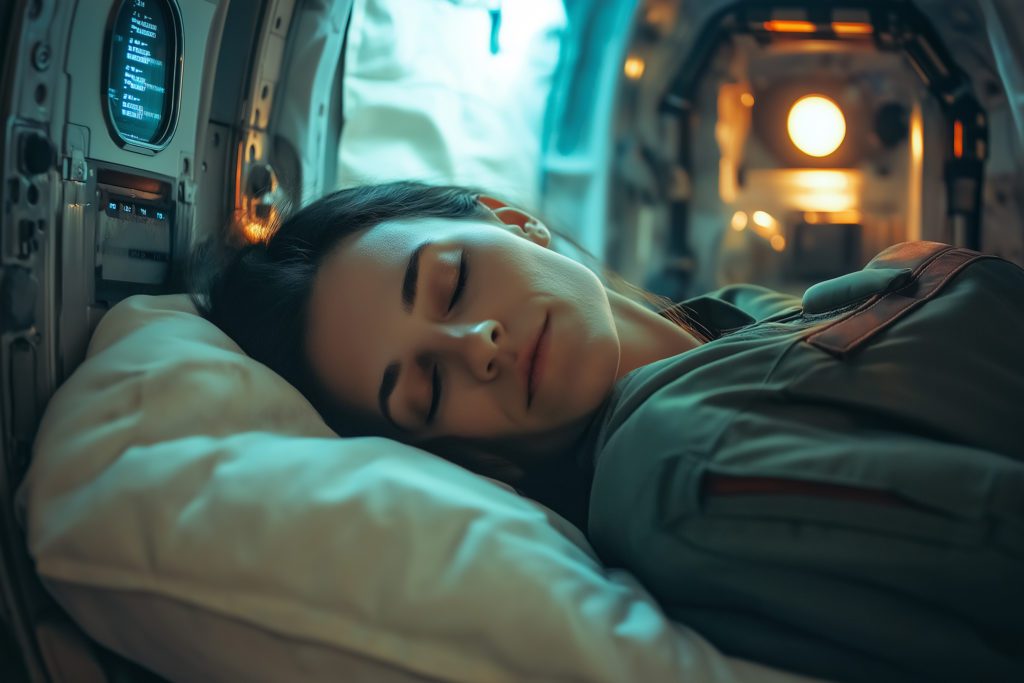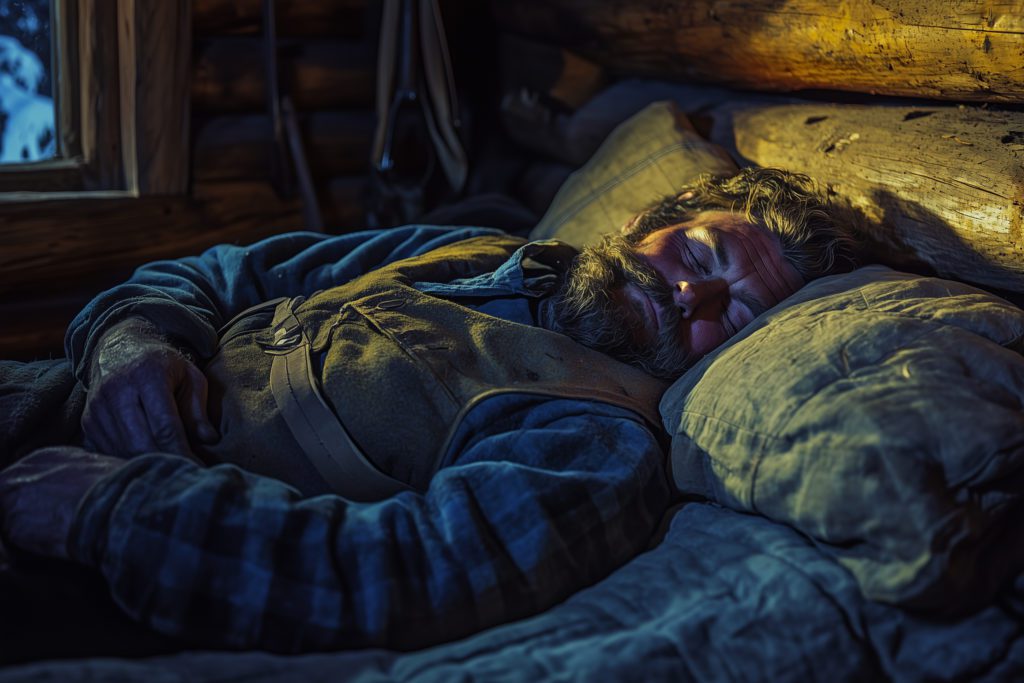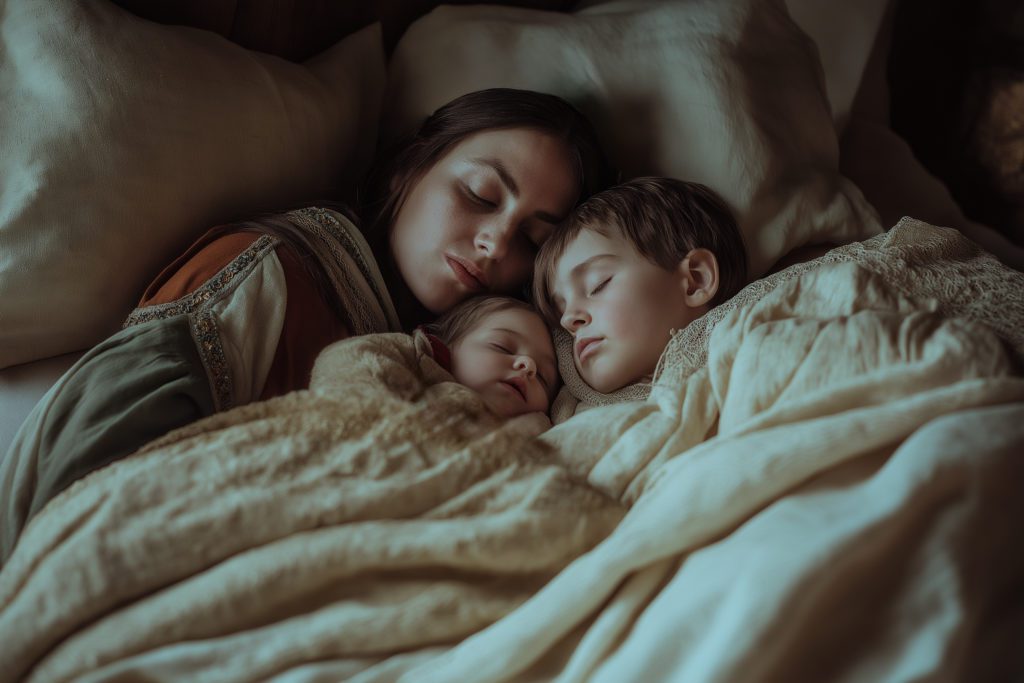
See the Strides Being Made by Global Initiatives to Combat Sleep Disorders
Discover where the latest breakthroughs in sleep health are being made by learning about global initiatives to combat sleep disorders.

Sleeplessness is a global health crisis. Poor sleep isn't just a nuisance that can lead to a groggy morning the next day. Sleep deprivation's links with a variety of health issues and chronic diseases make poor sleep a serious health worry for people around the world. A number of global medical agencies and organizations have taken notice. In an effort to reduce mortality rates and healthcare costs associated with the consequences of poor sleep, they're sounding the alarm on the need for good sleep practices and better sleep hygiene. Are you interested in learning more about what the healthcare community is doing around the world to better understand and promote good sleep habits? Here's a look at global initiatives to combat sleep disorders.
1. Global Sleep Health Task Force
The Global Sleep Health Task Force is an organization that calls on governments, researchers, research publications, and other stakeholders to recognize sleep health as a foundation of human health. The organization's advocacy work is based on promoting education on sleep and circadian rhythm health and awareness. Its goals and initiatives include:
- Supporting and informing the development of sleep health guidelines
- Collecting international sleep health data
- Facilitating discussions among health experts regarding global sleep health
- Building connections with the world's policymakers
- Increasing the number of sleep medicine professionals around the world through facilitating mentorship, training, and increased opportunities for up-and-coming professionals
- Promoting public health campaigns to spread awareness of sleep health
Global Sleep Health Task Force members are located in the United States, Canada, Switzerland, Iran, Brazil, Austria, and Australia. While its policies are globally minded, the organization intends for its policies to be easily disseminated at the local level in communities around the world. Currently, members are developing collaborative networks to push for inclusion of sleep health in public health and policy agendas.
2. World Sleep Society
Have you heard of World Sleep Day? This day of awareness was the result of advocacy done by the World Sleep Society. The organization also manages the World Sleep Congress and International Sleep Research Training Program. The World Sleep Society is a nonprofit, professional membership organization focused on advancing sleep health worldwide. Members from dozens of countries are renowned experts in sleep medicine. Each year, members help to organize more than 200 activities at the local level to raise awareness about the importance of sleep health during World Sleep Day.
3. National Heart, Lung, and Blood Institute
A part of the National Institutes of Health (NIH), the National Heart, Lung, and Blood Institute (NHLBI) funds research on sleep disorders through its National Center on Sleep Disorders Research (NCSDR) division. The NHLBI's scope allows the agency to fund a wide range of studies and trials focused on common and rare sleep disorders that include sleep apnea, insomnia, narcolepsy, jet lag, sleep paralysis, and more. This research may hold the key for understanding root causes of sleep impairments and developing treatments and therapies for debilitating sleep disorders. The NHLBI also helps to promote the growth of sleep medicine by providing grants to fund career training and innovative research ideas.
4. American Academy of Sleep Medicine (AASM)
Established in 1975, the American Academy of Sleep Medicine is a United States professional society focused on sleep medicine and disorders affecting the body's circadian rhythm. This is also the organization tasked with accrediting and monitoring sleep medicine clinics and facilities in the United States. The organization's primary mission revolves around advancing sleep care and enhancing sleep health.
When new findings in sleep health are discovered, the AASM reaches out to publications and other medical societies to educate physicians and policymakers on best practices. For example, the AASM has famously advocated the idea that school times for middle school and high school students should be no earlier than 8:30 a.m. in order to support adequate sleep that is needed for proper health and development. Research shows that later start times may help teens obtain sufficient sleep on school nights. Opportunities for more sleep may allow teens to be more alert and enjoy better academic performance in the classroom.
5. Private Organizations
The number of private organizations focused on promoting good sleep health is on the rise. These organizations are vital for funding research and spreading awareness about proper sleep hygiene. They provide opportunities for those in the fields of sleep health and medical research to publish and share their findings. In addition, they provide information for the public that can help people who are struggling with poor sleep or sleep disorders to seek out treatments, therapies, or lifestyle changes that can promote better sleep. Here's a list of some of the most respected private sleep-related organizations.
Restless Legs Syndrome Foundation (RLS)
The Restless Legs Syndrome Foundation is a nonprofit agency dedicated to improving the lives of anyone suffering from this disease. Its core initiatives are to increase awareness, improve treatments, and advance research to ultimately discover a cure for RLS. Since 1992, it has been the only organization of its kind. The advocacy work of the RLS Foundation has helped to shine light on what was once thought to be a "rare" disease.
Academy of Dental Sleep Medicine (AADSM)
As the link between oral health and sleep issues becomes better understood, the importance of the Academy of Dental Sleep Medicine’s (AADSM) role in helping to promote sleep health becomes much bigger. The organization's main goal is to advance the success rate of dentists and dental providers in treating obstructive sleep apnea, snoring, and associated conditions. Professional members are given access to resources for reducing the number of undiagnosed patients with sleep apnea and related conditions. These resources include professional development, research, and advocacy tools.
It's exciting that so many global initiatives to combat sleep disorders exist. The research being done today could mean that common sleep disorders that are diminishing quality of life and decreasing lifespan could become things of the past. For now, taking sleep health into your own hands is important. Pillow lets you track sleep duration and quality using a simple app. Having an idea of your nightly sleep performance helps you to see where there might be room for improvement with sleep habits and bedtime hygiene.
FAQ
How do I know if I have a sleep disorder or if I just sleep badly sometimes?
If you're constantly exhausted, snore heavily, wake up gasping, or struggle to fall asleep no matter what you do, it might be more than just bad habits—it could be a real sleep disorder.
Why is sleep health considered a global health crisis?
Sleep deprivation is linked to chronic diseases such as heart disease, obesity, and diabetes, increasing healthcare costs and mortality rates. Global initiatives focus on improving awareness, research, and policy changes to mitigate these risks.
Why does sleep feel like such a struggle for so many people?
With busy schedules, screen time, stress, and demanding jobs, sleep often takes a backseat. But lack of sleep isn’t just about feeling tired—it’s linked to serious health risks like heart disease, obesity, and depression.
How do global sleep initiatives actually help people like me?
These initiatives aren’t just about research—they push for real-life changes like later school start times, better work-life balance, and more accessible sleep treatments.
What’s the most exciting sleep research happening right now?
Scientists are exploring everything from wearable tech that tracks sleep to new therapies for insomnia and sleep apnea. Personalized sleep medicine is a growing field, too!

Written by
Emily Mendez
Emily Mendez is a former therapist and mental health author. She is one of the leading voices in mental health. Emily's writing has appeared in eCounseling, SonderMind, and more. Emily is frequently interviewed by Healthline, Fatherly, INSIDER, Family Circle, and other national media for her advice and expert opinion on the latest mental health topics.
Download Pillow
Get help
Press & News
Legal
Connect
X (Twitter)
Company
Copyright © Neybox Digital Ltd.



